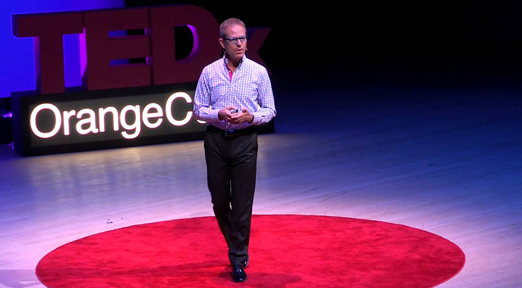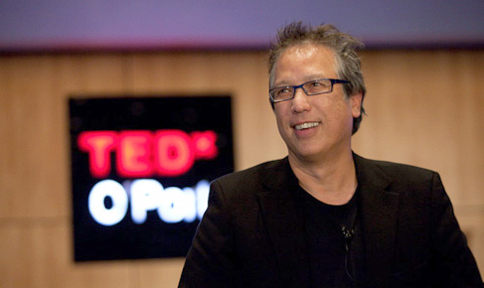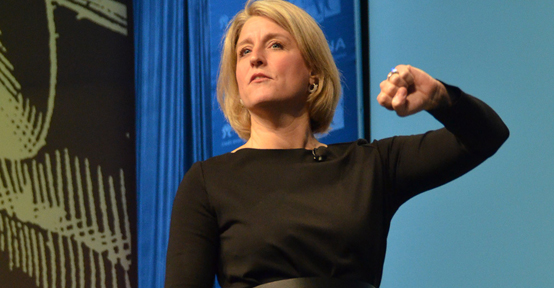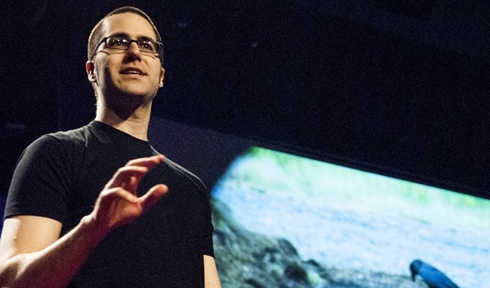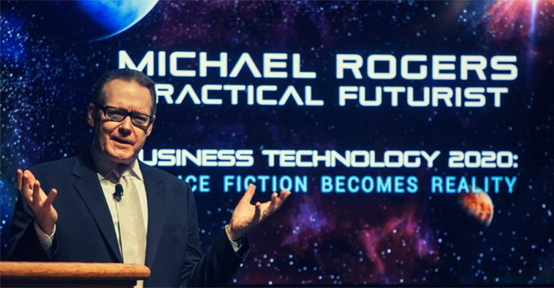
What to Expect: Life and Work in the 2020s
| By the early 2020s, we will be connected to the Internet 24 hours a day, seven days a week. | |
| |
 | How would you describe “the virtualization of the world”? |
 | It’s the idea that much of how we work, shop, learn, amuse ourselves, and even meet our mates, is moving into the cybersphere--the virtual world. It may seem like that’s already happened, but in fact our online transformation is just beginning. By the early 2020s, we will be connected to the Internet 24 hours a day, seven days a week, either consciously, through the devices we wear, or unconsciously, through all of the objects around us. |
 | How will our increased digital connectivity affect our social skills and connection to the real world? |
 | It’s already clear that growing up with one foot in the virtual world can affect the development of real-world social skills. I know one Fortune 500 company that’s started remedial social skills training for certain new hires. One of the skills they’re teaching is how to start a conversation, and know a conversation is over.
It’s an interesting moment for older workers. When we’re uncomfortable with some of the depersonalizing aspects of the new digital lifestyle, are we just being old fogies--or are we defending basic human values? |
 | Who are today’s “digital natives” and what does their existence mean for businesses? |
 | Young people begin making virtual friends in childhood and thus develop an enhanced ability to make and maintain meaningful virtual relationships. It’s something that Boomers and GenX really can’t duplicate or even fully understand. For today’s young people, though, it’s a normal part of growing up. In the workplace, that will translate into skill and comfort in working in virtual environments, with coworkers who may be on the other side of the country or the planet. |
 | What elements are key to running a successful business as we look towards the 2020s? |
 | For many businesses, it will be the question of what belongs in the real world, what belongs in the virtual world and how you move your customers back and forth between the two. |
| Flexible working conditions will ultimately be expected by the most talented workers, and if you don’t offer that, they will move on to the next opportunity. | |
| |
 | What are the advantages of businesses allowing employees to telecommute? |
 | Clearly it can save money on physical office space. It will also save time and money in terms of commuting. We tend to forget that the US is still the fastest-growing developed nation on earth, on our way to 400 million inhabitants. If you think it’s crowded on the road right now, just wait!
Finally, flexible working conditions will ultimately be expected by the most talented workers, and if you don’t offer that, they will move on to the next opportunity. |
 | What are the top challenges of managing a group of employees working remotely and how can leaders approach those challenges? |
 | Ronald Reagan’s phrase during the Cold War applies here: “Trust, but verify.” Managers who are accustomed to on-premise workers need to learn trust. The vast majority of remote employees are probably working harder than they would in a cubicle, but at the same time there must be clear metrics about expected goals and accomplishments, and transparent accountability for each worker. Creating meaningful metrics without also creating a “sweat shop” or “piecework” atmosphere is critical.
Second: HR needs to invent new ways to create a sense of community--to unify workers in different places. HR departments have a very exciting decade coming up as they grapple with all of the issues of workers shifting between the virtual and physical worlds. |
 | What steps do you recommend people take to ensure they can succeed in the job market of 2020? |
 | When parents ask me about their kids’ educations, I say that three skills will always be valuable in the job market: communication, problem solving, and collaboration. In addition, everyone should have basic scientific literacy--the ability to think analytically and to follow chains of evidence. That’s the value, I think, of learning a computer language early in education. It’s not that you’re likely ever to use that language in a job, but it teaches you how logical machines operate, and that’s key to the future of working in a world filled with such machines.
With the above abilities as a foundation, you can add specific skills --business, technical, creative arts, healthcare, etc. -- and be fairly sure you have the broad skills for the evolving workplace. |
 | What kinds of jobs will we be seeing disappear in the next few years? |
 | Here’s one recent example I’ve run across. Many of the entry level jobs in professions like law, accounting, advertising--the jobs that have traditionally been the way young people begin their careers--are also the tasks that can most easily be automated by cognitive computing, the leading edge of artificial intelligence. This leaves organizations like law firms, for example, wondering how to monetize new young associates early in their careers, when their traditional duties like research, contract drafting, and discovery are done more cheaply, and sometimes better, by intelligent machines. |
| What will your home’s voice sound like? Will it be funny or serious? Formal or warm and friendly? | |
| |
 | With the rise of virtual assistants like Siri, what are your thoughts on the possibility that technology may soon take on a more personal role in our lives (i.e. the iOS system conveyed by Scarlett Johansson’s voice in the movie Her)? |
 | I recently spoke to a group of contractors who do advanced home security and automation. I told them to start thinking now about what kind of personality a home should have. Much of the future home will be voice controlled--it will be as if there is an ever-present but invisible butler waiting to turn on lights, lock the doors, tell you the temperature outside, update you on where your kids are, and much more. What will your home’s voice sound like? Will it be funny or serious? Formal or warm and friendly? |
 | This year augmented reality sets were among the stars of the TED convention in Vancouver. How do you foresee the market for such devices in the coming years? |
 | By the mid-Twenties we’ll have three kinds of reality: the real world, augmented reality, and virtual reality. The demonstration at TED was virtual reality, wherein you are entirely transported to a different world via an elaborate (and usually expensive) set of goggles and headphones. It’s an amazing and almost overwhelming experience. In fact, many users can only stand thirty minutes or so of VR at a time before they are exhausted. Poorly produced VR can actually result in nausea. While the implications are huge, I think widespread use of VR for entertainment and education is still some years away.
Augmented reality--eyeglasses that let you see around you, but which also display digital information that appears to be superimposed over the real world--will be very important. Google Glass was an early and unsuccessful approach, but I’m seeing prototypes of AR glasses now that I can really see people wearing by the end of the decade. ========================================================= |


